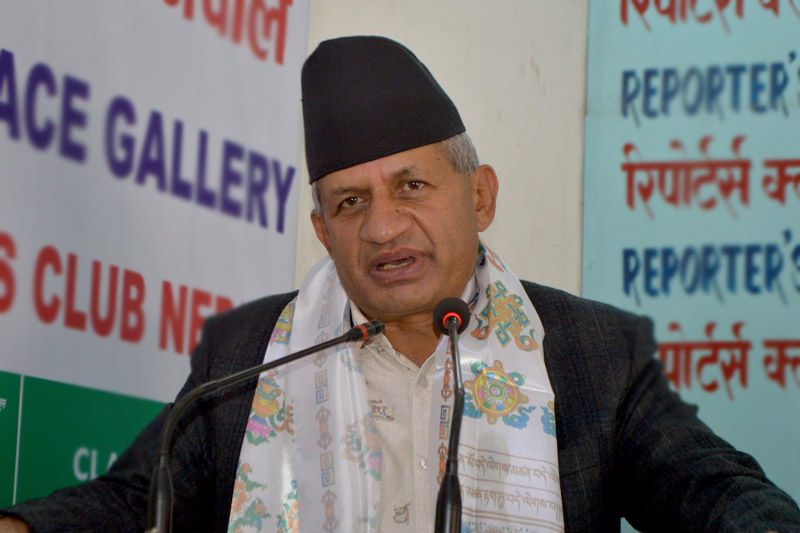‘External assistance not required in TJ process’
Kathmandu, March 5
Minister of Foreign Affairs Pradeep Kumar Gyawali today said the international community was confident about Nepal’s ability to take the transitional justice process to its logical conclusion on its own.
Speaking at an interaction with mediapersons after his return from the 40th session of the United Nations Human Rights Council, Gyawali also made it clear that the government had not felt necessary any external assistance in concluding the home-grown and nationally-led transitional justice process.
“Of course, we need international goodwill, but we are capable of concluding the transitional justice process in our own original way,” he said, adding that this was, among others, what he discussed during his meetings in Geneva.
Gyawali reiterated that the government would consider five factors while taking ahead the transitional justice process — Comprehensive Peace Accord; Nepal’s national and international obligations related to human rights; decisions and orders of the Supreme Court; sentiments of conflict victims; and the Nepali context. “I have also said in my UNHRC address that there won’t be blanket amnesty in grave human rights violation cases,” he said.
Gyawali said the major focus of Nepal’s transitional justice process was reconciliation, forging unity in society and nursing the wounds inflicted during the conflict. He said the transitional justice process would also be concluded uniquely in the same way other tasks of peace process, such as army integration, was concluded. “For this, we of course need international goodwill, and we have that,” he said.
Tenure of the two transitional justice bodies —Truth and Reconciliation Commission and the Commission of Investigation on Enforced Disappeared Persons — has recently been extended by a year, and the government is in the process of amending the Transitional Justice Act in line with Supreme Court verdicts and international standards.
There are around 65,000 complaints of conflict-era rights violations with these two bodies, but they have failed to make substantial progress due to the lack of necessary legislation, besides crunch of human and financial resources.
Gyawali said the government was trying to forge a broad political consensus on amendment of the act, and was also holding consultations with stakeholders, especially the victims. “We are hopeful, the commissions will complete their jobs within the extended tenure,” added Minister Gyawali.






